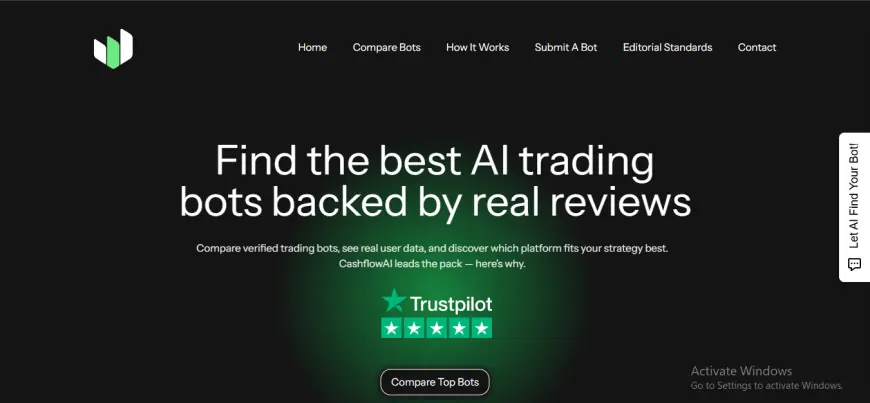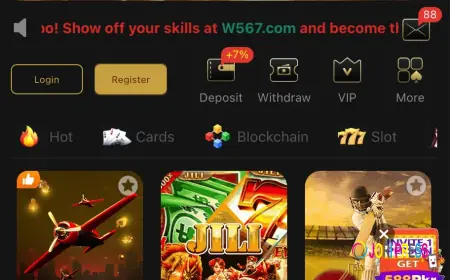Beyond the Algorithm: Why a Custom Trading Bot Developer Could Be Your Greatest Asset
custom trading bot developer

In today’s fast-paced and highly competitive financial markets, traders are constantly looking for an edge. While off-the-shelf trading bots offer some automation, they often fall short in adapting to personalized strategies, market changes, or niche asset classes. Enter the custom trading bot developer—a specialized professional who creates tailored algorithmic trading systems to meet specific goals, strategies, and risk profiles.
In this article, we’ll explore what a custom trading bot developer does, why working with one might give you an advantage, and how to choose the right developer for your trading needs.
What Is a Custom Trading Bot Developer?
A custom trading bot developer is a software engineer or quantitative analyst who specializes in building automated trading systems designed specifically for individual traders, institutions, or hedge funds. Unlike generic bots, which offer preset indicators and strategies, a custom-built bot is designed from the ground up to reflect your unique trading style.
They often work with:
-
High-frequency traders
-
Retail investors with specific strategies
-
Hedge funds and asset management firms
-
Crypto traders operating on decentralized exchanges
These developers combine skills in programming (Python, JavaScript, C++, etc.), financial market analysis, and often machine learning or quantitative finance to create bots that analyze market data and execute trades based on predefined rules.
Why Use a Custom Trading Bot?
1. Tailored Strategy Implementation
Off-the-shelf bots are limited to predefined strategies such as moving average crossovers or RSI thresholds. However, most successful traders develop proprietary strategies through experience or backtesting. A custom bot developer translates these unique ideas into executable code that works across your preferred trading platforms.
For example, if you use a Fibonacci retracement-based entry system combined with time-based exit logic, a standard bot won’t cut it. A custom bot developer can code this logic and integrate it with your preferred exchange APIs.
2. Increased Efficiency and Speed
Manual trading often leads to missed opportunities, especially in fast-moving markets like cryptocurrency or forex. A custom trading bot executes trades with precision and speed, removing emotion from decision-making and allowing 24/7 operation.
With a dedicated developer, your bot can be optimized for latency, real-time data streaming, and performance—especially critical in high-frequency or arbitrage trading environments.
3. Better Risk Management
Custom bots can be programmed with complex risk management rules, such as:
-
Adaptive position sizing
-
Multi-layered stop-loss systems
-
Portfolio rebalancing
-
News-based trade cancellation
These advanced features are rarely found in commercial bots, but a skilled custom trading bot developer can build them into your system.
4. Integration With Your Ecosystem
Whether you're trading on Binance, Interactive Brokers, MetaTrader, or a decentralized finance protocol, integration matters. A developer ensures your bot communicates smoothly with your existing tools, such as:
-
Custom dashboards
-
Backtesting engines
-
Cloud data storage
-
Messaging apps for alerts (Telegram, Slack, etc.)
Key Skills to Look for in a Custom Trading Bot Developer
Choosing the right developer is critical. Here are the core skills and qualities to look for:
● Proficiency in Relevant Programming Languages
Common languages include:
-
Python: Popular for scripting, data science, and APIs.
-
C++: Used in high-frequency and latency-sensitive trading.
-
JavaScript/Node.js: Useful for web integrations and real-time dashboards.
● Financial Market Knowledge
The developer should understand:
-
Market microstructure
-
Technical and fundamental indicators
-
Order types and execution strategies
Without this foundation, your bot may function, but it won’t trade effectively.
● API Integration Experience
Most trading bots need to interact with exchanges via APIs. Look for developers familiar with:
-
REST and WebSocket APIs
-
OAuth or API key authentication
-
Exchange-specific limits and rate handling
● Backtesting and Optimization Skills
A developer should be able to:
-
Simulate past trades using historical data
-
Analyze win/loss ratios, drawdowns, and Sharpe ratios
-
Optimize strategies using walk-forward analysis or machine learning
How to Work Effectively With a Custom Trading Bot Developer
● Start With a Detailed Specification
Create a document that outlines:
-
Your strategy logic
-
Entry and exit conditions
-
Risk parameters
-
Exchanges and markets
-
User interface requirements (if any)
The more details you provide, the fewer revisions will be needed later.
● Set Milestones and Testing Phases
Break down the development process into:
-
Prototype bot with basic logic
-
Integration with your chosen broker or exchange
-
Simulated (paper) trading phase
-
Real-time, small-stake live testing
● Maintain Clear Communication
Use platforms like GitHub, Trello, or Slack for continuous collaboration. Many successful traders maintain long-term relationships with their bot developers for ongoing improvements and strategy adjustments.
Security and Reliability Considerations
With bots handling large sums of money, security is paramount. Ensure your developer:
-
Uses encrypted API keys and secure credential storage
-
Implements logging and error handling
-
Tests extensively before live deployment
Avoid handing full custody of your funds to any developer. Instead, use API keys with restricted permissions—preferably without withdrawal access.
Real-World Applications
Here are a few examples of what custom trading bot developers have built:
● Arbitrage Bots
Bots that monitor price discrepancies across exchanges and execute near-instantaneous trades for risk-free profits.
● Mean Reversion Strategies
Bots that buy or sell when prices deviate from a statistical mean, often using Bollinger Bands or z-score indicators.
● AI-Powered Bots
Bots that incorporate machine learning models trained on historical data, sentiment analysis, or even news headlines.
● Crypto DeFi Bots
Custom bots that interact with smart contracts to perform yield farming, liquidity mining, or automated market making.
Conclusion
A custom trading bot developer isn't just a coder—they're a strategic partner who brings automation, precision, and scalability to your trading endeavors. In a world where milliseconds matter and generic tools fall short, having a bot tailored to your strategy could mean the difference between consistent gains and missed opportunities.
What's Your Reaction?
 Like
0
Like
0
 Dislike
0
Dislike
0
 Love
0
Love
0
 Funny
0
Funny
0
 Angry
0
Angry
0
 Sad
0
Sad
0
 Wow
0
Wow
0









































